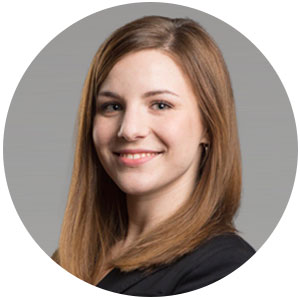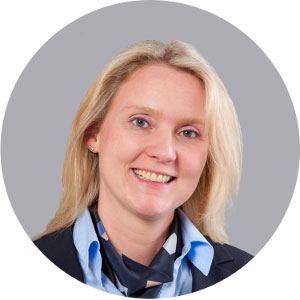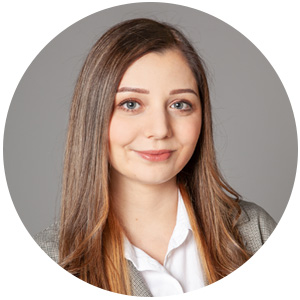The aim of the Conference is to bring together stakeholders at the EU-level, to exchange on available and upcoming tools in the area of digital and precision applications and work towards a progressive and compliant development of risk assessment and risk management instruments enabling these new application techniques.
For the Digital Agriculture Conference, we can offer a special rate of € 200,00 + VAT, exclusively to a limited number of pertinent competent authorities (competent authorities of the EU Member States) and exclusively for on-site participation.
Click here to benefit from this fee (please be prepared to provide evidence of your affiliation).
Digital Technologies in agriculture are seen by regulators and stakeholders as an enabler of the objectives of the Green Deal and Biodiversity Strategy, as well as of the principle of Sustainable Food production systems in Europe. Precision applications are part of this innovation, and there is a need to link the technology to regulatory needs for data generation and risk assessments.
The Conference will be taking place in Dusseldorf/Germany on 10 and 11 April 2024.
You can also follow all the exciting contributions via our live stream!
Please find all information on the virtual participation here.
Regulatory Status
Relevant Developments & Regulatory Challenges
Technology & Research
Professionals working in the fields of:
Sectors that should take part:
Picture Credit: © elenabsl - AdobeStock
PLEASE NOTE: The indicated times refer to Central European Time CEST.
For further time zones, please view here.
Anne Alix, Corteva Agriscience, United Kingdom
Jonas Schartner, German Federal Office of Consumer Protection and Food Safety (BVL), Germany
Anne Alix, Corteva Agriscience, United Kingdom
Jonas Schartner, German Federal Office of Consumer Protection and Food Safety (BVL), Germany
Eric Liégeois, European Commission, Belgium (virtual presentation)
Domenica Auteri, European Food Safety Authority (EFSA), Italy
Tom Bals, Independent Consultant, United Kingdom
Alexander Pfaff, Federal Office of Consumer Protection and Food Safety (BVL), Germany
Joachim Dressel, Syngenta, Switzerland
Rena Isemer, Bayer, Germany
Alf Aagaard, Danish Environmental Protection Agency, Denmark
Anne Steenbergh, Board for the Authorisation of Plant Protection Products and Biocides (Ctgb), The Netherlands
Melissa Reed, Health and Safety Executive / Chemicals Regulation Division (HSE/CRD), United Kingdom
Oliver Schmittmann, University of Bonn
Vegard Line, Kilter, Norway
PLEASE NOTE: The indicated times refer to Central European Time CEST.
For further time zones, please view here.
Anne Alix, Corteva Agriscience, United Kingdom
Jonas Schartner, German Federal Office of Consumer Protection and Food Safety (BVL), Germany
Jens Karl Wegener, Julius Kühn Institute (JKI), Germany
Grant Stark, Health and Safety Executive / Chemicals Regulation Division (HSE/CRD), United Kingdom
Emilio Gil, Universitat Politècnica de Catalunya, Spain
Vincent Guth, Corteva Agriscience, France
Martina Keller, Agroscope, Switzerland
Name
Unternehmen

Aalf Aagaard
Danish Environmental Protection Agency (EPA), Denmark
Alf Aagaard is an Environmental Risk Assessor at the Danish EPA and an External Lecturer in ecotoxicology and environmental risk assessment at the University of Copenhagen. At the EPA, he assesses pesticides at European level and at zonal/national level for product registration. Alf has also worked on European Water Framework Directive regulation of chemicals, including procedures for prioritising chemicals of concern and derivation of Environmental Quality Standards and between 2007 and 2010 Alf joined the European Food safety authority EFSA as Senior Scientific officer.
mehrweniger
Anne Alix
Corteva Agriscience, United Kingdom
Anne Alix joined Dow AgroSciences, now Corteva Agriscience, in 2011, as distinguished laureate in Policy and Risk Management for Europe, Middle East and Africa, where she advises on sustainability policies and precision applications. She has been working in the area of plant protection products risk assessment for 23 years. After a PhD in Integrated Pest Management (IPM) at the University of Rennes, Anne joined the French National Institute for Research in Agronomy (INRA) as an ecotoxicologist in the scientific unit for the risk assessment of crop protection products. Anne was nominated head of the Environment and Ecotoxicology risk assessment unit at the French Agency on the safety of Food (AFSSA, now ANSES), where she initiated scientific collaborations with the pesticide unit of EFSA. Anne then joined the French Ministry of Agriculture as the deputy head of the Section for Regulation of Plant Protection Products and fertilizers, in charge of the implementation of risk mitigation measures for pesticides and of post registration monitoring.
mehrwenigerDomenica Auteri
European Food Safety Authority (EFSA), Italy
Domenica Auteri is an Ecotoxicologist with more than 20 years of experience in the field of regulatory environmental risk assessment of pesticides. She is the Team Leader of the Ecotoxicology Team in the Pesticides Peer Review Unit of the European Food Safety Authority (EFSA).” She was responsible for the review of the neonicotinoids. She coordinated, from EFSA side, the drafting of the ECHA/EFSA guidance on identification of endocrine disruptors. Currently she is leading her team for with the review of the guidance documents for birds and mammals and bees.
mehrweniger
Tom Bals
Independent Consultant, United Kingdom
Tom Bals worked for 40 years for the SME Micron Sprayers Ltd (who manufacture innovative rotary atomiser and other equipment for crop protection and sell worldwide - with particular emphasis on developing countries), becoming Managing Director in 1988 and Chairman in 1993 (with Micron gaining a UK Queens Award to Industry, a CWDE Award for long term commitment to sustainable development and various other awards during his tenure). Tom retired from Micron in September 2020, but has continued his involvement with AEA, CEMA and Standards projects.
mehrweniger
Joachim Dressel
Syngenta, Switzerland
Joachim Dressel is the Regulatory Lead for Precision Application and Digital Agriculture- in region Europe at Syngenta. He has previously held roles as Senior Regulatory Manager for insecticides, fungicides and herbicides at Syngenta, as an environmental consultant and as environmental exposure expert at BASF. He holds a PhD in Agricultural Sciences and has a passion for agriculture as well as our environment.
mehrwenigerEmilio Gil
Polytechnic University of Catalonia (UPC), Spain
Emilio Gil is a Full Professor at the Universitat Politecnica de Catalunya in Barcelona (Spain). He is the Head of Unit of the Agricultural Machinery Research Group, and has been professor at Cornell University (ISA). Expert member of ISO in several Working Groups related with spray application technology. Emilio has over 30 years of experience in the improvement of spray technologies, especially for eD crops. He is also the Author of the Dosaviña App to adjust PPP dose for vineyards and been advisor to several governments, for instance Serbia, Chile, Cyprus and Spain, advising them on the Sustainable Use Directive.
mehrwenigerVincent Guth
Corteva Agriscience, France
Vincent Guth is an Application Technology Scientist at Corteva Agriscience. With an educational background in chemical and information technology Vincent previously occupied a wide variety of positions with Corteva and one of its predecessors DuPont Crop Protection, i.a. Global Packaging Lead.
mehrweniger
Rena Isemer
Bayer, Germany
Rena Isemer is an Ecotoxicology Expert specialising in non-target plants at Bayer AG in Germany. A molecular biologist by training, Rena has previously worked as research associate at the University of Kiel.
mehrwenigerMartina Keller
Agroscope, Switzerland
Martina Keller studied agricultural sciences at the Swiss Federal Institute of Technology in Zurich (ETH). She obtained her PhD at the University of Hohenheim (Germany) in the field of weed science. Currently, she works as a Senior Scientist and Efficacy Evaluator in the Vegetable-Production Extension group at Agroscope. She is responsible for the research projects in weed science and application technology in vegetable production. She is familiar with the registration process of pesticides in Switzerland and is experienced in applied research and carrying out field trials.
mehrweniger
Vegard Line
Kilter, Norway
Vegard Line is the Chief Technology Officer in Kilter AS. He has an engineering background within Cybernetics and Robotics, and is passionately engaged to make a positive contribution to food production by developing and implementing new technology.
mehrweniger
Eric Liégeois
European Commission, Belgium
Eric Liégeois is a Senior Policy Officer at the European Commission in charge of Pesticides Legislation, moderating the Working Group on biopesticides and contributing to risk mitigation measures policy for DG SANTE. Formerly he was the Head-of-Sector for Fertilisers, Plastics and Circular Economy at DG GROW.
mehrweniger
Alexander Pfaff
Federal Office of Consumer Protection and Food Safety (BVL), Germany
Alexander Pfaff has been a Scientific Officer at the German Federal Office of Consumer Protection and Food Safety (BVL) since 2020. At the BVL he is responsible for efficacy management of insecticides and involved in projects for improving the provision of PPP authorisation data. Previously, he studied Crop Protection and finalised his PhD Project on tomato pests.
mehrwenigerMelissa Reed
Health and Safety Executive / Chemicals Regulation Division (HSE/CRD), United Kingdom
Melissa Reed is a senior ecotoxicologist currently leading the ecotoxicology team in CRD-HSE. Over the last 18 years she has been involved in many activities related to ecotoxicological risk assessment including contributing to several EFSA scientific opinions related to effects modelling.
mehrwenigerJonas Schartner
Federal Office of Consumer Protection and Food Safety (BVL), Germany
Jonas Schartner has been working in the department for Plant Protection Products (PPP) at the German Federal Office of Consumer Protection and Food Safety (BVL) since 2017. Since 2021 he has been leading the subgroup for environment, managing fungicides and insecticides in the PPP authorisation. After studying Chemistry and Biology at the Ruhr-University Bochum he obtained his Masters degree at the Pennsylvania State University, USA. In 2015 he received his PhD in Biophysics at the Ruhr-University Bochum.
mehrwenigerOliver Schmittmann
University of Bonn, Germany
Oliver Schmittmann has been responsible for the working group ‚Agricultural Engineering' at the Institute of Agricultural engineering/Department for Agricultural Engineering and Robotic at the University of Bonn, since 2019. His research focusses on applying AI in agriculture. He also has a keen interest in technology and cultivation systems for sugar beet-seeding, weeding, harvesting technology, precision farming,especially sensor technology and subsoil management (Soil3).
mehrwenigerGrant Stark
Health and Safety Executive / Chemicals Regulation Division (HSE/CRD), United Kingdom
Grant Stark is Head of the Evidence, Committees and New Technologies team, in the Chemicals Regulation Division of the UK’s Health and Safety Executive. His role includes identifying and determining the potential impact new technologies can have on the risks associated with the application of pesticides. He is currently the Chair of the OECDs Working Party for the Pesticides Drone sub-Group.
mehrweniger
Anne Steenbergh
Board for the Authorisation of Plant Protection Products and Biocides (Ctgb), The Netherlands
Anne Steenbergh is a Policy Advisor in the area of sustainable plant protection at the Dutch Board for the Authorisation of Plant Protection Products and Biocides (Ctgb). A Microbial Ecologist by training Anne is also part of the Ctgb ‘GreenTEAM'.
mehrweniger
Jens-Karl Wegener
Julius Kühn-Institute (JKI), Germany
Jens Karl Wegener has been Director and Professor of the Institute for Application Techniques in Plant Protection at Julius Kühn-Institute (JKI), since 2013, . In 2017 he was appointed to be Honorary Professor at Technical University of Braunschweig, where he is supporting teachings of the Institute for Mobile Machinery and Commercial Vehicles (IMN). Furthermore he is conducting the interdisciplinary and university-covering block module \"Innovative Plant Protection Technologies\" together with students and instructors from five different Universities: His main focus is on optimization and risk assessment of processes and procedures in agriculture. In this context Prof. Wegener intensively studied the possibilities, limitations and benefits of new technologies for different agricultural purposes.
mehrwenigerWir haben für Sie im Veranstaltungshotel bis 4 Wochen vor Veranstaltungsbeginn ein begrenztes Zimmerkontingent zu ermäßigten Preisen reserviert. Bitte buchen Sie direkt beim Hotel und nennen Sie das Stichwort „Akademie Fresenius“.
Teilnahmepreis: € 1.995,00 zzgl. MwSt.
Im Teilnahmepreis sind folgende Leistungen enthalten:
Vertreter:innen einer Behörde oder einer öffentlichen Hochschule erhalten einen ermäßigten Teilnahmepreis von € 895,00 zzgl. MwSt. (Nachweis per Fax oder E-Mail erforderlich). Der Sonderpreis ist nicht mit anderen Rabatten kombinierbar.
Sondergebühr* für zuständige Behörden: € 200,00 + MwSt.
Für die Konferenz Digital Agriculture bieten wir eine Sondergebühr von € 200,00 + MwSt. an, exklusiv für eine begrenzte Anzahl von relevanten zuständigen Behörden (zuständige Behörden der EU-Mitgliedstaaten) und exklusiv für die Teilnahme vor Ort in Düsseldorf.
Klicken Sie hier um von dieser Gebühr zu profitieren (bitte halten Sie ggf. einen Nachweis für Ihrer Affiliation bereit).,
*begrenzte Anzahl von Plätzen verfügbar
Gruppenrabatt
Bei gemeinsamer Anmeldung aus einem Unternehmen erhalten die dritte und jede weitere Person 15 % Rabatt.
Buchen ohne Risiko
Eine kostenfreie Stornierung oder Umbuchung ist bis vier Wochen vor Veranstaltungsbeginn schriftlich möglich. Nach diesem Zeitpunkt und bis zu einer Woche vor Veranstaltungsbeginn erstatten wir Ihnen 50 % der Teilnahmegebühren. Bei späteren Stornierungen oder Nicht-Erscheinen können keine Teilnahmegebühren erstattet werden. Sie erhalten jedoch in diesem Fall von uns nach der Veranstaltung die Veranstaltungsdokumentation. Eine Ersatzperson können Sie jederzeit kostenfrei benennen.

Anne Möller
Inhalt und Konzeption
+49 231 75896-84
amoeller@akademie-fresenius.de

Anne Möller
Inhalt und Konzeption
+49 231 75896-84
amoeller@akademie-fresenius.de

Anne Möller
Inhalt und Konzeption
+49 231 75896-84
amoeller@akademie-fresenius.de

Alexandra Schardt
Organisation und Teilnehmermanagement
+49 231 75896-74
aschardt@akademie-fresenius.de

Alexandra Schardt
Organisation und Teilnehmermanagement
+49 231 75896-74
aschardt@akademie-fresenius.de
Präsentieren Sie Ihr Unternehmen auf unserer Veranstaltung.
Persönlich und zielgruppengenau stellen Sie Ihre Produkte und Dienstleistungen vor. Gerne informieren wir Sie unverbindlich über die verschiedenen Möglichkeiten – von der Auslage von Produktinformationen bis hin zum Ausstellungsstand.
Gerne beraten wir Sie persönlich:

Monika Stratmann
Telefon: +49 231 75896-48
info@akademie-fresenius.de
Wir bieten Journalist:innen und Redakteur:innen eine Plattform, um in Kontakt mit Expert:innen zu treten.
Wenn Sie als Redakteur:in der Fachpresse Interesse an einem Pressepass oder einer Medienpartnerschaft haben, kontaktieren Sie uns bitte frühzeitig. Wir beraten Sie gerne.
Sprechen Sie uns an:

Katharina Geraridis
Telefon: +49 231 75896-67
presse@akademie-fresenius.de
© Die Akademie Fresenius GmbH